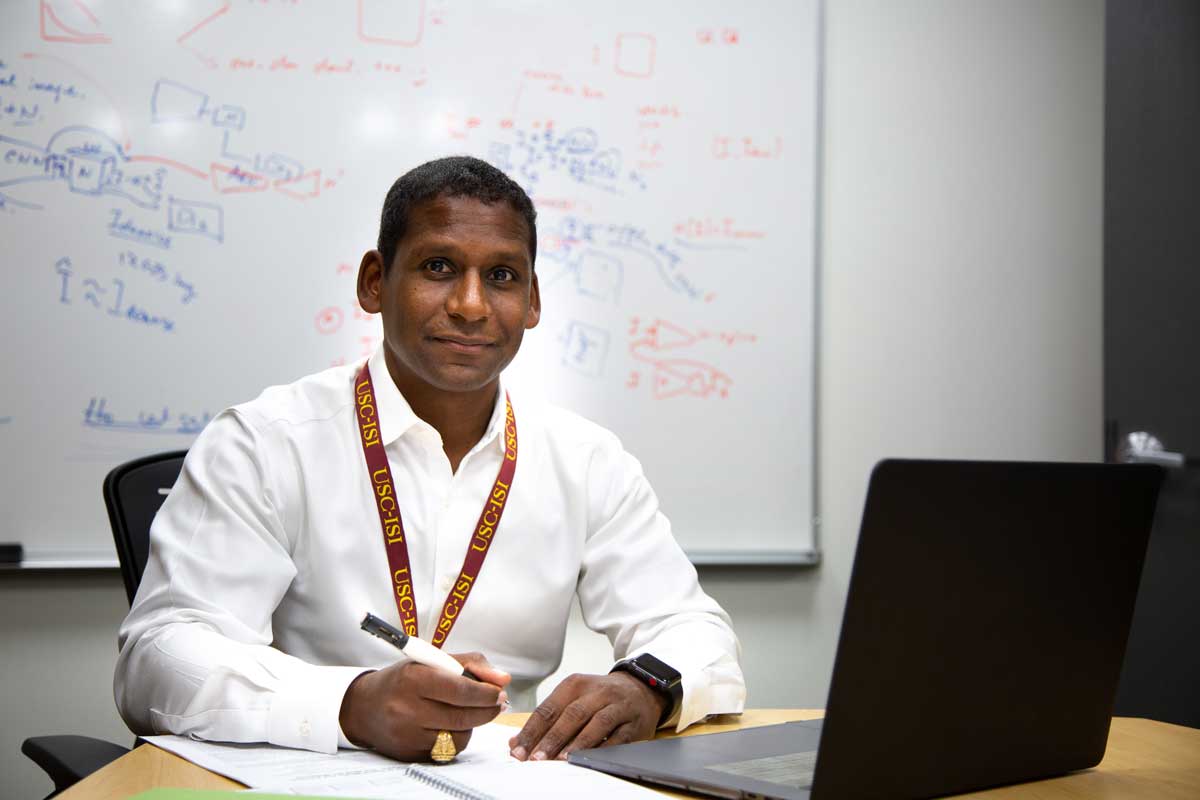
Ashok Deb
From driving military vehicles and teaching soldiers in foreign battlefields, to tackling computational social sciences projects at a research institute—ISI PhD candidate Ashok Deb has done it all.
Deb, an active duty officer who has clocked up more than 17 years of service in the US Army, is currently part of ISI’s Machine Intelligence and Data Science (MINDS) group, working under the guidance of ISI Research Team Leader Emilio Ferrara, a USC research assistant professor in computer science.
Deb’s current projects explore research at the intersection of computer science and social science, such as the spread of fake news and misinformation on social media during election cycles. We sat down with him to hear more.
You’ve been serving in the Army for more than 17 years—what motivated you to further your education and join USC and ISI to complete your Ph.D.?
Well, I started my academic career at the U.S. Military Academy—after that, I served in Iraq and then pursued my master’s degree at Georgia Tech. Before joining USC and ISI, I was serving as an assistant professor and researcher at the Military Academy and an analyst at the Pentagon. I’m still on active duty.
So, coming to ISI was a natural continuation of my education. But I’m really glad I came here. For one, ISI’s Marina del Rey location is just outstanding. And secondly, I absolutely love how collaborative we are here. When you walk into a room you won’t know who is a student and who is a faculty member. All ideas are welcome, and everyone is treated equally.
Still, it must be a pretty big change. Can you tell us a bit more your duties in the military compared to what you are doing now as a researcher at ISI?
Indeed! When I started in the military, my desk was the front hood of a military combat vehicle, so it’s definitely been a change. At ISI, I am mainly working on an Intelligence Advanced Research Projects Activity (IARPA) project aimed at developing and testing new automated methods to fight cyber- attacks. I also work on different computational social science initiatives.
Can you tell us about one of your recent published papers?
Well, we recently worked on a paper studying possible election manipulation on the 2018 Midterm Elections. We collected the hashtag #ivoted on election day and compared it against the actual number of voting turnouts. Surprisingly, 47 out of 50 states line up quite well, but we have found concerning malicious accounts in the states of New York, Texas and California. From there, we were able to have some in-depth discussions on the challenges on the social media manipulation of elections.
Interesting. But why did you choose to focus on computational social sciences? Why not another area of computer science?
There is so much data being generated online; so many posts being shared and so many photos being taken—all of this is generated by internet users. As a result, we now have a real opportunity to understand the human mind: the behavioral aspect and the social interaction aspect. I find analyzing this data very interesting. I want to know more about human behaviors, but more importantly, I want to work to prevent possible disruptions and dangers online. That’s what really drives me.
You’ve had so many fascinating experiences, already. But what’s your plan for the future?
I will go wherever the Army needs me. Honestly, I will serve as long as they will have me.
Published on August 29th, 2019
Last updated on May 16th, 2024










